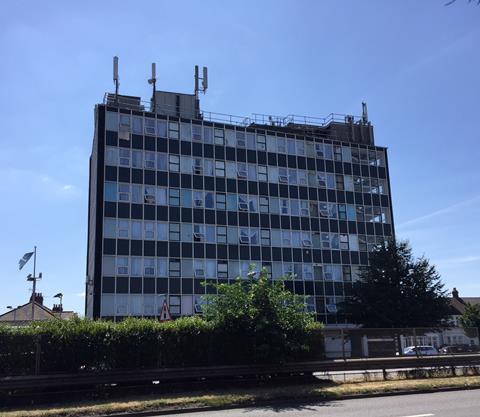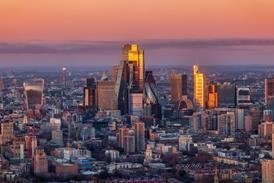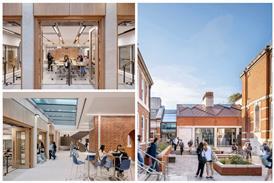Landmark report says 570,000 homes have been built which will overheat since Climate Change Committee first identified the issue
Government action to address the problem of overheating in new homes has been “notably absent” despite the serious risk of death to inhabitants as climate change impacts worsen, a major report has warned.
The government’s independent Climate Change Committee said in a landmark update to its assessment of the risk to the UK from climate change, that since its last report 570,000 new homes had been built which would be likely to overheat in hot summers, risking the health of residents.
This is despite the fact the committee predicts the number of heat-related deaths in the UK could rise from an average of 2,000 to 7,000 each year by 2050, and has identified overheating in buildings – and housing particular – as one of eight key risks to the UK from climate change.
The committee said that currently many of the 300,000 homes the government wants to build each year could become “uninhabitable” because of climate change if building regulations are not changed to combat overheating, adding that the shift towards home working was increasing the urgency of getting to grips with the issue.

The report said: “Out of the committee’s list of priorities, this risk is notable for being the one where policies still remain largely absent. There is still little preventative action being taken to address health risks from overheating in buildings, and in homes in particular.”
The RIBA condemned the ”damning assessment of the UK’s climate action progress”.
President Alan Jones said the government must go “further and faster” and recognise the importance of architects and good design in mitigating climate change.
”Architects have key skills and experience needed to mitigate some of the disastrous effects of climate change – and we are committed to supporting them through initiatives including the 2030 Climate Challenge,” he said.
“But the government must also step up and set adequate regulatory standards.
”The proposed means to address overheating within the Future Buildings Standard remains far too basic; the Heat and Buildings Strategy is long overdue; and we still lack a clear plan to retrofit existing homes – not only to reach net zero, but to improve the quality of life for those who live there.”
Architects have also highlighted the damaging role played by the government’s policy of permitted development rights which allow many building types to be turned into housing with a minimum of scrutiny or standards, often resulting in poorly ventilated homes that easily overheat.

The Met Office has predicted that prolonged heat waves like the one seen in 2018 are likely to occur on average every other year by 2050 with temperatures possibly exceeding 40 degrees, while urban “heat island microclimates” are expected to intensify, resulting in “tropical” night time temperatures in major cities.
The report called for an overhaul of building regulations including the National Planning Policy Framework (NPPC) and a massive retrofitting programme to tackle overheating in new and existing buildings.
Recommendations include improved glazing, draught proofing, installing shutters on windows, use of reflective surfaces, ceiling fans and covering walls with greenery.
There is a major risk of homes being built through the government’s housebuilding programme being unprepared for hotter conditions if urgent action is not taken now, with inaction potentially leading to buildings becoming largely uninhabitable as temperatures rise, the report said.
CCC chief executive Chris Stark told the BBC that it was “really troubling” how little attention the government has paid to climate-proofing measures.
“The extent of planning for many of the risks is really shocking. We are not thinking clearly about what lies ahead.”

Baroness Brown, chair of the CCC’s adaptation committee, said that the government had not been listening to the group’s recommendations and were still building homes which were unfit for future climate conditions.
“Since our last climate change risk assessment five years ago we have built 570,000 new homes in this country, which are not well adapted to heat and which will overheat in typical summers today, let alone the summers we will be having in 10 from 20 years time.”
Responding to the report, Alastair Mant, business and transformation director at the UK Green Building Council, said the government must have detailed and costed plan to ensure UK buildings are resilient.
He added: “Ahead of COP26 in November, it is time to show global leadership and initiative by ensuring climate adaptation actions are being implemented at a national scale.”
And Emily Shuckburgh, director of Cambridge University climate change policy group Cambridge Zero, said that it would be “shocking” if the government did not respond to the report.
She added that preventing homes, where 30% of people in the UK now work, from becoming “furnaces” in future summers would make “good economic sense”.
The report comes amid a heat wave across large parts of the UK, with temperatures in London nearing 30 degrees today and expected to stay in the 20s through the night.
















2 Readers' comments